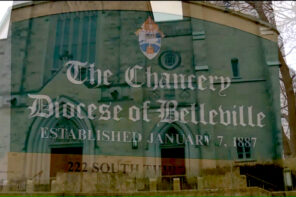I think I agree with RD’s own Sarah Posner that denominations should disclose their in-house lobbying activities. If they’re not doing anything wrong, they have nothing to fear from disclosure. At the very least, it lets their members know what the church is doing in their name, which strikes me as a very democratic and very Christian standard.
But no, the Catholic church should not have its tax-exempt status investigated for supporting the admittedly-loathsome Stupak amendment, as Lynn Woolsey argues. Given that lobbyists have literally written entire bills in the past, it seems unfair to single out one group’s activities. Either “break the link between lobbyists and legislation” altogether, or don’t do it at all.
The reason denominations or other religious groups don’t have to file disclosure forms or tax returns, of course, is the separation of church and state. The deal runs roughly thus: the government doesn’t tax the churches, and the churches stay out of partisan politics. That agreement has been imperfectly held, but that’s the way it’s supposed to work. Contrary to what Sarah says, the tax exemption for churches is not a subsidy, nor is it a privilege; it’s money the government is not entitled to and has no control over.
As for the grants that go to Catholic Charities, among other groups: those organizations are legally separate entities from their parent churches. You could argue that government money frees up church funds for things like evangelism or lobbying, but you could just as easily argue that the churches would be better off without the subsidies they pour into their charitable arms. I’d want to see some math before jumping to any conclusions.
But the bottom line is that tax exemption is the price our society pays in exchange for religious groups refraining from supporting political candidates or parties. Liberals sometimes like to criticize the basic church-state deal when it appears not to work in their favor, but it’s not at all clear that lifting denominations’ tax exemption would be any better. (I realize this is not what Sarah is calling for.)
First of all, the only thing worse than the Catholic bishops dancing around the edges of the health care reform debate would be the Catholic bishops jumping in with both feet and nothing to restrain them.
Second, the tax exemption protects smaller denominations, like my own United Church of Christ. Without it, we’d be so busy trying to survive that we wouldn’t be able to advocate for much of anything. Since mainline denominations tend to the smaller and relatively more liberal, this is helpful all around.
Last, while I think it’s fair to ask churches to abide by the same disclosure rules as other entities, let’s not kid ourselves. Even the Catholic church has far less money to throw around than the insurance industry or Big Pharma, let alone Goldman-Sachs and their Wall Street cronies. Somebody has to represent a non-dollar-centric point of view in these debates. While the way the bishops have carried out that responsibility is heavy-handed, regressive and offensive, the same protections enable other, more productive groups] to participate.
That seems like a good thing to me, but then—full disclosure—I’m a pastor.




